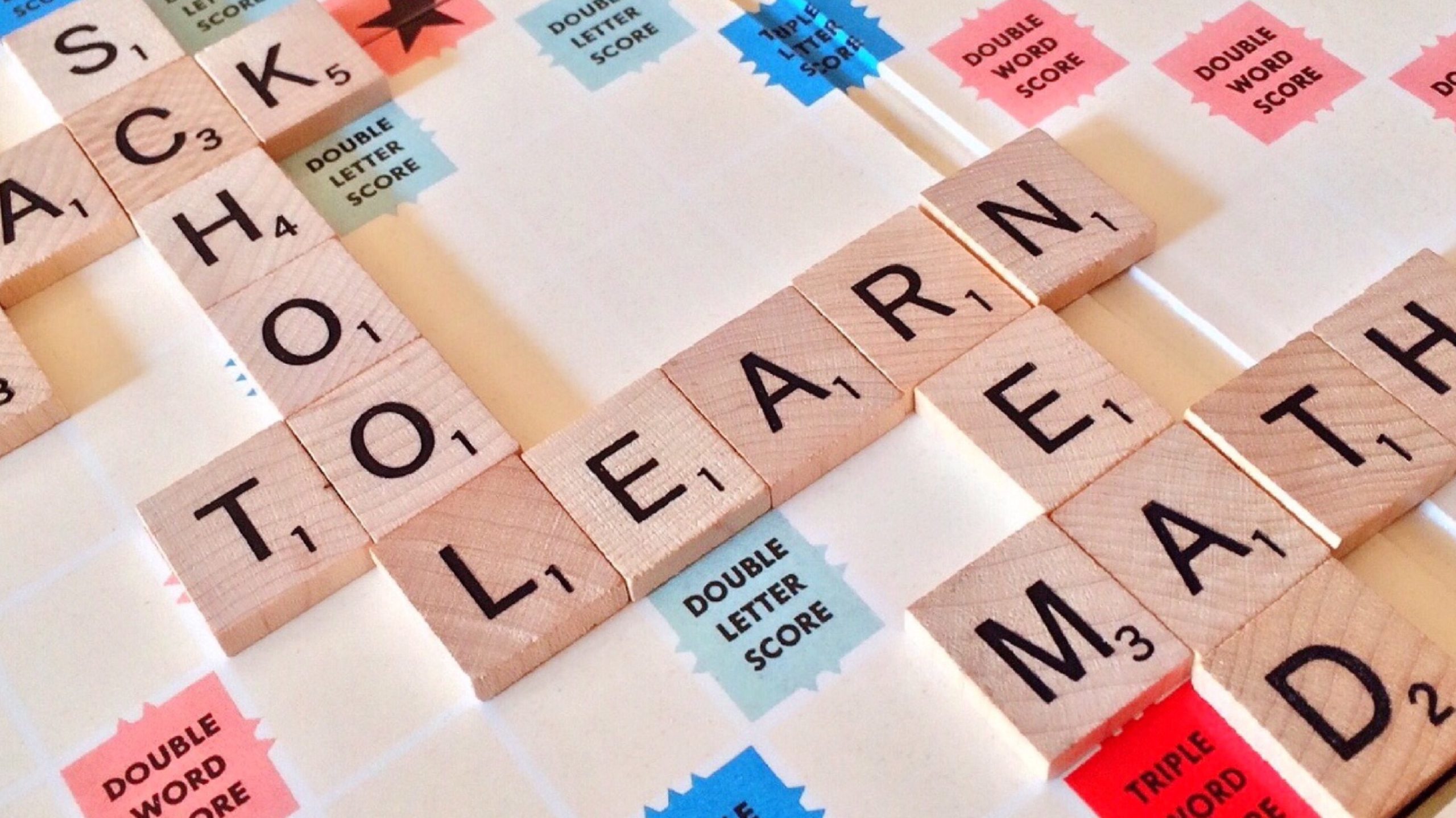If you’re studying at school, college or university, it’s likely that you’ll come across some education idioms. When you do, you’ll be ready with this list of examples to refer to.
These idioms about studying can actually come in handy in all kinds of situations; not just in educational settings. We have included easy-to-follow explanations and examples of how you may hear each expression used in everyday life.
If you’re not sure what English idioms are, be sure to revise so that before long you’ll be top of the class!

Education idioms about studying
Pass with flying colors
Hopefully these education idioms will help you or your child pass your exams. When you pass with a high mark or distinction you are said to have passed with flying colors.
“I was so impressed with how she did in the test. She passed with flying colours.”
The history of this saying relates to when ships would return to port with the colors of their flags showing to confirm success in their mission. Flag colors lowered would mean defeat
Hit the books
When it’s time to prepare for an exam, you need to study intensively and with full concentration. This process of revising everything you need to know is sometimes called hitting the books.
“I can’t come out tonight as I have a test in the morning and must hit the books.”
Although you may do all of your studying online rather than from physical books, you can still use this expression. The same goes for some writing idioms – even though you may not use pen and paper much anymore, we still use expressions like ‘paper trail’.
Learn/know something by heart
When you learn something by heart it means you know it so well you don’t need to think about it. It’s like memorizing something. Things you could know by heart include a piece of music, song lyrics, a poem, or lines to your favorite movie.
“She’s watched that movie so many times she’s learnt it by heart.”
“This was my favorite song as a teenager. I still know the lyrics by heart!”
This is an example of a more general idiom about learning which could apply to a wide range of situations.
Brush up on (something)
When you brush up on a subject, you are revisiting something you have already learned in order to refresh your memory or hone your skills.
“Althought Kim did well in the exam she may wish to brush up on her Victorian history.”
A bookworm
If you really enjoy reading books, people may affectionately refer to you as a bookworm. This book idiom refers to a person who loves reading and always seems to have their head buried in a book.
“David is always reading, in fact he’s a bit of a bookworm.”
The term ‘bookworm’ can also refer to the insects that like to feed on the paper and glue in books, causing a big problem for museums trying to preserve old texts.
Get your thinking cap on
This collection of education idioms wouldn’t be complete without the saying get your thinking cap(s) on. A teacher might use this phrase to motivate their students when they need to carefully consider all options to work something out.
“Come on guys, this is an easy equation. Time to get your thinking caps on.”
This expression can be used more widely to relate to problem-solving in the workplace. Find more work-related idioms here.
Brainstorm
To brainstorm is similar to getting your thinking cap on. The main difference between these two education idioms is that brainstorming is normally done as part of a group. People discuss the question or issue together and build on each other’s ideas.
“The team are meeting at lunchtime for a brainstorming session to come up with new ideas for the product name.”
Know your stuff
After you have spent some time studying and you have a good understanding of a topic, people may say that you know your stuff. This idiom about knowledge means to be well-versed and competent on a topic, perhaps regarded as an expert.
“Kamal really knows his stuff when it comes to mechanics. Why don’t you ask him?”
Copycat
When it comes to school idioms, you don’t want to be called this. If you cheat during a test or an exam by using the same answers that you see on your friend’s paper, you are copying their answers. You are a copycat.
“I think we have a copycat in our class as two exams had exactly the same answers.”
This term can be related to anything that you copy, for example wearing the same clothes or liking the same things.
If you’re a cat person, there are plenty of cat idioms to enjoy (or dog idioms if you prefer).
Drop out
Unfortunately, not everyone will make it through their education journey. If you drop out of something (e.g. university, an activity or a sports team), you stop participating or abandon it.
“Sadly, I have decided to drop out of university.”
Someone who does this could also be described as a dropout.
“I may be a college dropout but it hasn’t stopped me from having a great career.”
Teacher’s pet
Teacher’s pet is a very popular teacher idiom. This is a child that is really liked by their teacher and is treated preferentially because of it. Other students would normally use this term in a mean way to tease their classmate.
“Look at Susan. She’s such a teacher’s pet and always gets the easy jobs.”
As easy as ABC / 123 / do re me
This is a fun phrase you are likely to hear when studying. When you say that something is as easy as ABC or 123, you’re implying that it is very simple and not a challenge to complete. Less commonly, you may hear as easy as do re me (the musical scale).
“Wow, that test was as easy as ABC.”
In fact, this term could be used for anything that is easy. For example, the Jackson Five song ABC talks about falling in love.
Want more idioms to describe things that are easy?

School idioms
An eager beaver
Are you feeling keen and excited to learn more school idioms? Do you volunteer for additional duties, put in extra work without being asked, and request supplemental responsibilities at school? Then people may fondly refer to you as an eager beaver.
“Nathan, it’s 7 am and the team aren’t meeting until 7.30. What an eager beaver you are!”
The assonance in this phrase makes it fun to say, especially for children. You can find more fun idioms for kids here.
Show of hands
Sometimes during class, you may need to vote on something. When this happens your teacher will call for a show of hands. They are simply asking for you all to vote by putting your hand up for the option you would prefer.
“So, by a show of hands, who votes we play dodgeball today?”
To cover a lot of ground / A lot of ground to cover
To literally cover a lot of ground would mean to travel a great distance. However, in the context of education idioms, it has a different meaning.
When you have a lot of ground to cover at school or college, it means you have a lot to learn or a lot of topics to study.
“Ok everyone, I need you to settle down as we have to cover a lot of ground this afternoon.”
“Well done class, we covered a lot of ground this term.”
The school of hard knocks
Some school idioms aren’t actually about real schools. The school of hard knocks refers to living through hardships and disappointments in life. You’re acknowledging that bad things have happened to you to help form the way you are now.
“Ladies and gentlemen, I stand here before you as a survivor of the school of hard knocks, and a better person for it.”
We have some other idioms about bad things happening which may tie in to this kind of experience.
University of life
Here is another education idiom not talking about a physical place. That said, some may consider the university of life to be the best education. This expression refers to the lessons you learn through your good and bad experiences, or practical tips you gain from day-to-day life.
“I may not have got into a real university but the university of life taught me everything I needed to know.
School someone / (to be) schooled
Here’s another term not referring to a physical school. You can school someone by simply teaching them how to do something. When you are schooled you are taught something, but perhaps in an embarrassing way; for example, being beaten breakdance competition by someone with better moves.
“I’m schooling my brother in chemistry to help him.”
“Wow she really schooled that guy with her drop shot.”
Make the grade
This is another education idiom relating to tests or exams. Usually, there is a particular score that is required for you to pass the test. If you achieve this required score, you make the grade.
“The school policy is quite simple. If you don’t make the grade, you’ll be cut from the team.”
“You all made the grade this time, but only just.”
A similar phrase, make the cut, is almost the same in meaning but doesn’t refer specifically to passing a test with a certain score. It could be used in reference to a job interview or an audition, for example.
‘A’ for effort
When you get the top score in your homework or tests, you could be given 100% or grade ‘A’. If someone gives you an ‘A’ for effort, it means that you tried your best, even if you didn’t actually get an ‘A’.
“Although we didn’t win the match, all I can say is you guys get an ‘A’ for effort.”
Some idioms about sports can be helpful to encourage a team in a game.
You can’t teach an old dog new tricks
The popular saying you can’t teach an old dog new tricks suggests that the older you are, the harder it is to learn new things. It’s best not to say this directly to the person in question, as they may find it a little offensive.
“I don’t know why the math professor is still using a computer when a tablet would be more convenient. Guess you can’t teach an old dog new tricks.”
Bunk class / Cut class / Skip class
Sadly, there are plenty of ways to say you are not in school when you should be. To bunk, cut or skip class all mean that you miss your class without authorization.
“The tickets for the Five Town concert go on sale tomorrow. Let’s cut class so we can get in line to book the best seats.”
Other variations of this primarily heard in the UK are bunk off and play truant.
Boffin / Egghead
Not exactly idioms, but these words are worth knowing when you’re talking about school and education. Boffin and egghead are both terms for a clever person who is an expert in a certain topic, but perhaps a bit nerdy.
“Get your laptop fixed with Shane from across the street. He’s a boffin when it comes to technology.”
Every day is a school day
If every day is a school day, you learn something new every day. Do you think this is true? You are certainly here learning something new right now!
“I’ve finally learnt how to change the oil in my car. I guess every day really is a school day.”
Schoolboy error
In American English you may hear the idiom rookie mistake, as opposed to schoolboy error which is a British English idiom. Both refer to a foolish mistake that only someone with little or no experience would make.
“I thought James in accounting knew what he was doing, but that was a schoolboy error if I ever saw one.”
And that’s it for this list of education idioms. Do you now feel like a boffin that will make the grade, or are you ready to drop out? Either way, leave us a comment and say which expressions you like or perhaps need more help with.


